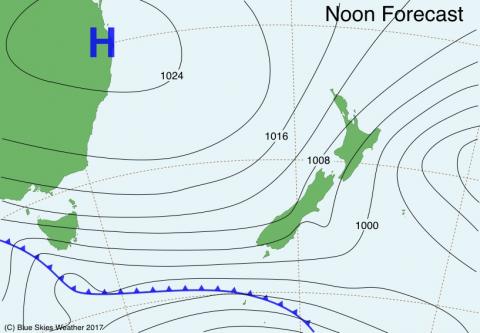-
More
Weather Forecast
- What's On
- Programmes
- Noticeboard
- Tuning
- Services
- DVD Shop
- About
- Home
- Business
Thursday 28th July, 2016
The latest monthly Regional Tourism Estimates show a strong start to the winter season with increased expenditure in every region.
Otago led the way with $3.2b in spending by both domestic and international visitors.
That's an 11% increase on June last year.
In total six regions saw expenditure of over $1b, something Associate Tourism Minister Paula Bennett attributes to hard work at both national and local levels.
She says the government remains focused on the dispersal of visitors across New Zealand to make sure all regions benefit from tourism spend.
Wednesday 27th July, 2016
The confidence of the country's farmers is slightly up on last year but remains weak.
The latest Farm Confidence Survey shows that around 70% of respondents expect their profitability to stay the same or improve over the next year.
However, Federated Farmers president William Rolleston says many farmers have concerns about the global market post Brexit, and its impact locally.
He says it's unsurprising almost 40% of respondents identified farm-gate prices as their biggest single concern.
Tuesday 26th July, 2016
The country's fruit exports are continuing to prop up the economy while dairy falls.
Overall goods exports rose 2.6% in the past year, up $109m.
Fruit led the increase, gaining 31% to push total goods exports for June to $4.3b.
Meanwhile the milk powder, butter and cheese commodity group is down $875m for the same period.
Tuesday 26th July, 2016
The economic impact of a large oil or gas discovery in New Zealand has dominated the conversation at a meeting held in Dunedin.
Cameron Madgwick of the Petroleum Exploration and Production Association spoke with local business representatives about the prospects of further exploration.
He says any discovery of a near-offshore field could be worth more than $3b, helping create hundreds of jobs in the development phase.
However it's an idea that's already prompting opposition from environmental groups around the country, including those locally.
Tuesday 26th July, 2016
Thumb not available yet
An American tech expert is in the city, to teach locals how to make the most of a business development programme.
The start-up scheme has been running for a year after it was implemented following the gigcity win.
And those behind the programme say it's only going to get better as time goes on.
Monday 25th July, 2016
The country's export log prices have dipped to a seven month low.
AgriHQ's monthly survey of exporters, forest owners and saw millers show the decrease is due to a stronger local currency and weaker prices in key export markets.
The average wharf gate price for New Zealand A-grade logs dropped to $114 in July, down $2 a tonne from June.
It's the lowest level since January, where the price was $115 a tonne.
Friday 22nd July, 2016
Staff turnover in New Zealand is on the rise with more workers willing to change jobs.
The latest Hays Salary Guide showed voluntary staff turnover had risen in almost a quarter of the 419 organisations surveyed.
The increasing number of resignations is being put down to factors such as an ageing workforce, reduced loyalty and rapid organisational change.
The results affirm what was shown in the annual New Zealand Staff Turnover survey earlier this year.
It showed that the national average turnover for 2015 was 18.4%, the highest rate since 2008.
Monday 18th July, 2016
Petrol values are continuing to influence the consumers price index, which rose a modest 0.4% in the last quarter.
Fuel rose 5.3% in the largest upward contribution for the period.
It was countered by higher prices for both meat and domestic airfares.
The average price of a litre of 91 octane surged to $1.78 over the second quarter of 2016.
Friday 15th July, 2016
Otago's prospective home owners are experiencing the negative side effects of a drop in the number of properties for sale.
The median price rose by more than $46,000 compared to June last year, with prices rising 12% in Dunedin.
The number of sales across the region rose 12%, and almost 15% in Dunedin alone.
Despite the number of sales falling 28% compared to May, it's estimated there is only 11 weeks of supply remaining.
Friday 15th July, 2016
The number of Otago-based jobs being advertised on a popular job seeking website is increasing, in line with a nationwide trend.
The latest data from employment website SEEK shows positions in the trades and services industries have increased by 68% year on year.
The sales sector is also showing a rise in the number of advertised roles, up around 32%.
Overall Otago as a region has enjoyed an increase of almost 20% in the number of jobs advertised on the site.

